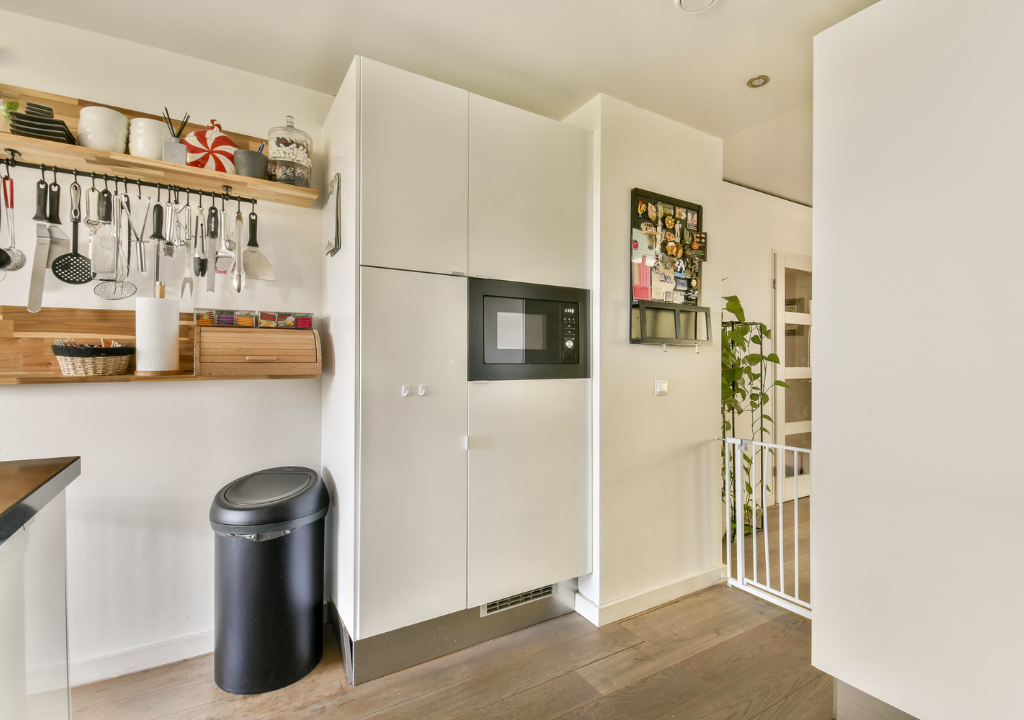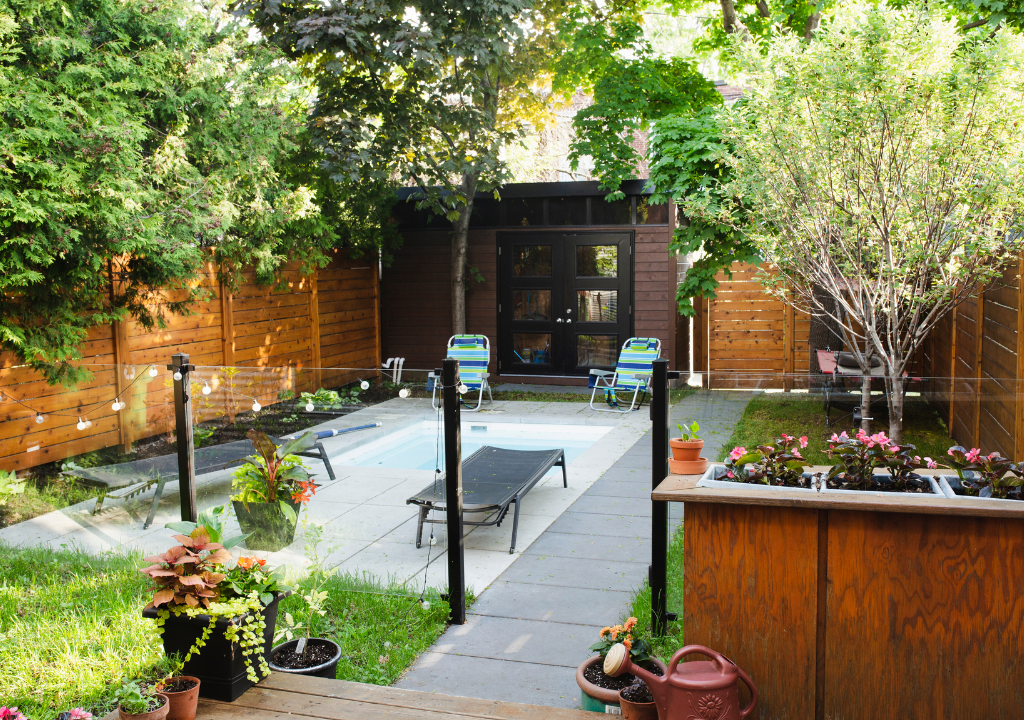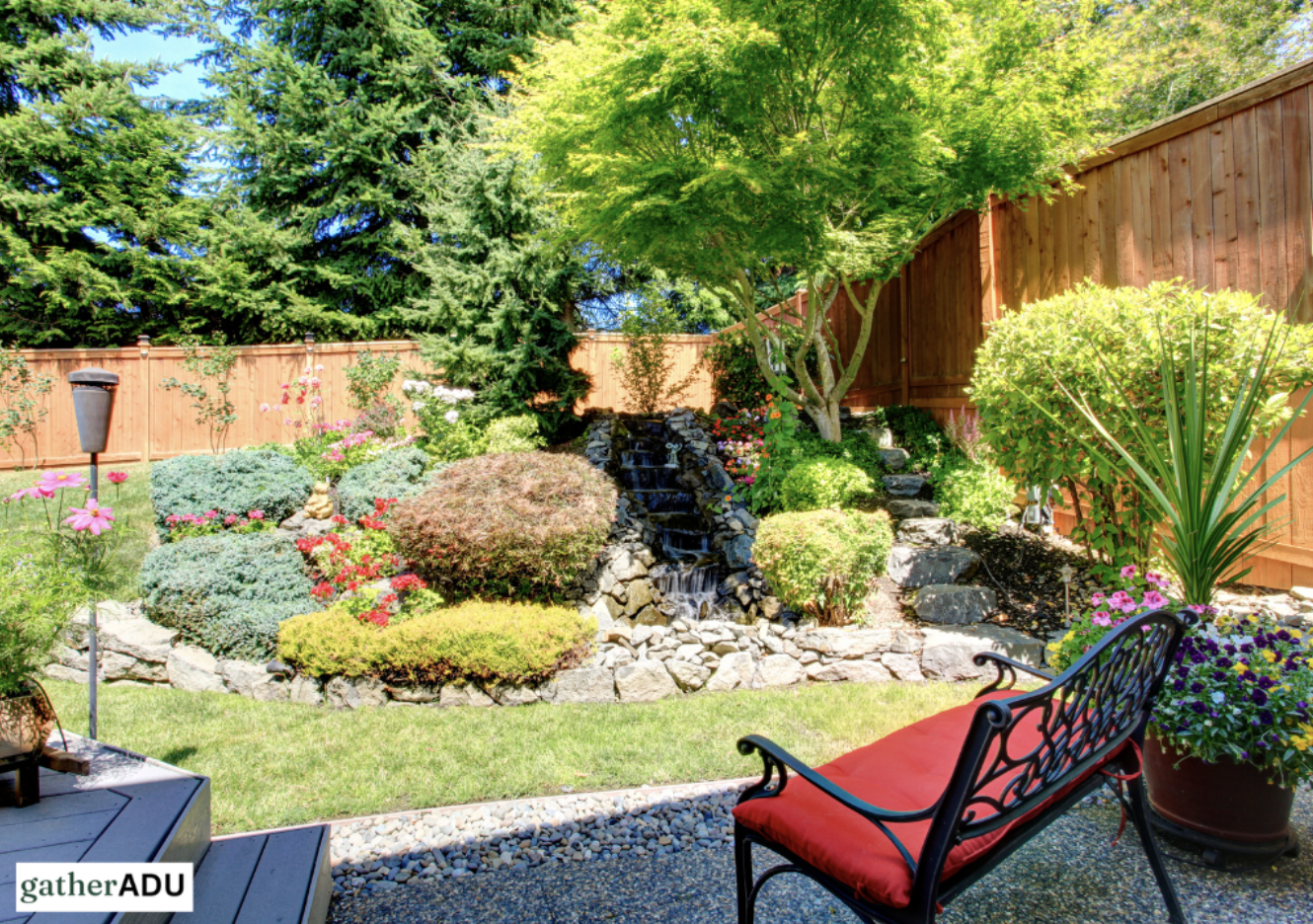Modern ADUs fit small Oregon backyards well. Additionally, they use vertical space, efficient layouts, and natural light. Designers also add lofts to increase floor area. Large windows are included for a feeling of openness. Moreover, outdoor connections expand the living space visually. These choices make small yards functional and inviting.
Smart ADU designs can unlock underused space in tight yards. They do this without compromising looks or compliance. For example, Gather ADU offers modern, streamlined solutions for Oregon zoning. These plans are compact and compliant. They are designed to maximize function in small backyards. The designs also fit seamlessly with your property.
What are Practical ADU Design Solutions for Tight Urban Spaces in Alsea?
Practical ADU designs work well in tight Alsea urban spaces. Therefore, they maximize vertical space and use multi-functional furniture. They also employ open floor plans. Sliding doors and outdoor connections make the space more usable. In addition, light colors, natural light, and layered lighting enhance openness. Conversions help save costs. Setbacks, fire safety, and energy systems ensure compliance and sustainability.
Efficient layouts matter greatly. Open-floor plans, multi-functional spaces, and sliding doors enhance flow. Elevated living areas or clerestory windows increase natural light. They do this without losing privacy. Landscaping and outdoor integration extend usable space. This keeps the tight-lot character. It creates a functional and pleasing living environment.

Which ADU Design Types Best Work for Small Backyards in Oregon?
For small backyards in Oregon, detached ADUs are often best. These include backyard cottages or garage conversions. They work best for larger lots (over 5,000 sq ft) where you want privacy. If your lot is smaller and your budget is tight, consider attached ADUs. Interior conversions, like a basement or attic, are also great options. Additionally, other space-saving designs include two-story units or L-shaped layouts. These maximize function while minimizing the footprint.
Modern ADU types that work well in small Oregon backyards include:
- Studio units under 800 square feet
- Lofted units that use vertical space efficiently
- Garage conversions or attached units that reduce the footprint
These designs fit within size and zoning requirements and maximize backyard potential. Moreover, detached ADUs up to 900 square feet are allowed on many small lots. Careful placement behind the main house improves visual harmony. Prefab or modular ADUs offer faster construction and consistent quality. This makes them ideal for small spaces.

What Zoning and Code Requirements Must You Check for Backyard ADUs in Oregon?
If you build a backyard ADU in Oregon, check your local zoning rules. Specifically, look for rules on size, number per lot, and setbacks. Verify compliance with the Oregon Residential Specialty Code (ORSC). The ORSC covers structural, fire, and energy efficiency rules. You must also confirm utility availability. Get all necessary permits from your city or county. This requires specific applications, site plans, and detailed drawings.
Additionally, utility connections, fire safety, and energy efficiency standards apply. Some ADUs require separate metering or shared services. Therefore, early verification with local authorities reduces delays. The transition from design to permit is easier. This happens when all local zoning rules are confirmed. This is especially true in small-lot urban zones.

What Cost and Construction Considerations Apply to Small-Lot ADUs in Oregon?
Small-lot ADU costs in Oregon include variable fees. These fees cover permits, impact fees, and SDCs. However, some cities, like Portland, waive development fees. Construction costs depend heavily on the ADU type (e.g., conversion vs. new build). Major expenses include labor and materials for framing, plumbing, and electrical work. Key construction rules involve local zoning laws and minimum setbacks.
However, prefabricated or modular systems reduce onsite labor and schedule risk. In addition, simple rooflines, standard dimensions, and smaller square footage help manage budgets. Careful sizing, construction sequencing, and experienced contractors make projects feasible. This ensures design compliance and quality. The project will succeed even in small backyard spaces.
Build Your Dream Small-Lot ADU with Gather ADU
Designing a small-lot ADU on your own can be confusing and stressful. Many homeowners face zoning restrictions, permit delays, and space limits. These challenges make the process overwhelming. Small mistakes in planning or design can lead to costly revisions. They can also slow down construction. This reduces efficiency and backyard usability.
Gather ADU simplifies every step of the ADU process. We deliver modern, zoning-compliant, and energy-efficient designs tailored for your property. Our team handles permits and coordinates construction. This ensures your small-lot ADU is functional, attractive, and stress-free. As a result, you can maximize your backyard’s potential. You also avoid delays and compliance issues.
FAQs
What size ADU is allowed on small lots in Oregon?
Most Oregon jurisdictions allow ADUs up to 800 square feet or 60% of the main dwelling’s floor area. Local codes may vary, and some cities have stricter limits. Therefore, confirming the rules ensures your ADU is compliant. This also helps avoid delays during permitting.
Do I need extra parking for an ADU in Oregon?
Many Oregon cities do not require off-street parking for ADUs on urban lots. Some suburban or rural areas still require one parking space per unit. Hence, always check your city or county zoning code before finalizing your design to prevent compliance issues.
Can I build a prefab ADU in a small backyard in Oregon?
Yes, prefabricated or modular ADUs are allowed on small lots in Oregon. Additionally, they reduce onsite construction time and disruption. Ensure your unit complies with local zoning rules for size, height, and setbacks before installation to avoid permit delays.
Are height limits stricter for ADUs in small backyard zones?
Yes, many tight-lot zones enforce stricter height limits. Detached ADUs often cannot exceed one to two stories. These rules protect neighbors’ views and ensure consistency. Always verify height restrictions with your local jurisdiction before finalizing your design.
How long does permitting usually take for a small-lot ADU in Oregon?
Permitting time varies by city and lot complexity. Typically, straightforward ADUs take 1-12 months from submission to approval if plans are complete and code-compliant. Working with experienced professionals helps reduce delays and ensures smoother permit processing.




